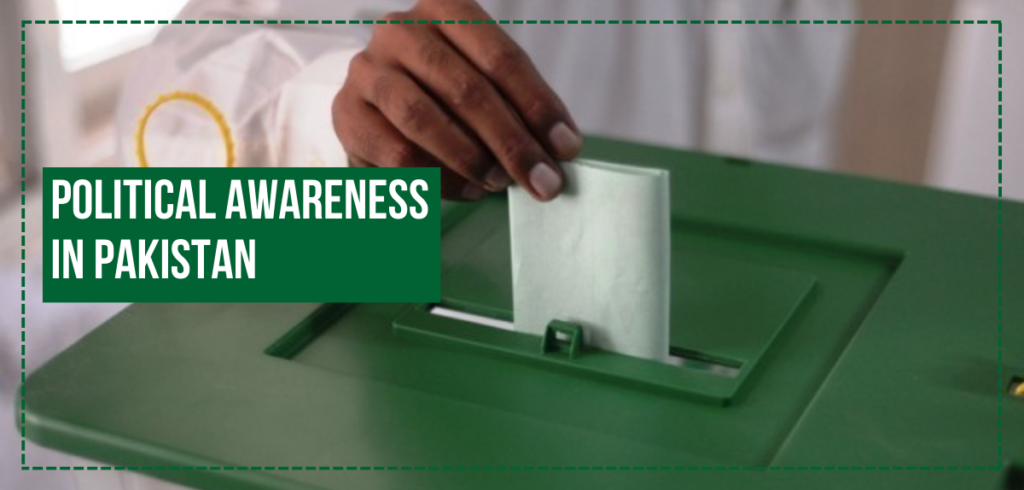Political awareness plays a vital role in shaping the future of any nation, and Pakistan is no exception. In a country where political dynamics are constantly evolving, it is crucial for the citizens to be well-informed and actively engaged in the political process. In this blog, we will explore the significance of political awareness in Pakistan and why it should be a priority for every Pakistani.
Understanding the Political Landscape
Pakistan’s political landscape is marked by a diverse range of political parties, ideologies, and agendas. From mainstream parties like the Pakistan Tehreek-e-Insaf (PTI) and Pakistan Muslim League-Nawaz (PML-N) to regional parties like the Pakistan People’s Party (PPP) and the Muttahida Qaumi Movement (MQM), there is a wide spectrum of political actors vying for power and influence.
To make informed choices during elections or to advocate for policies that align with one’s beliefs, it is imperative to have a solid understanding of these parties, their leaders, and their respective agendas. Political awareness equips individuals with the knowledge they need to critically evaluate candidates and parties, helping them make informed decisions at the ballot box.
Promoting Accountability
One of the fundamental principles of democracy is accountability. In a democratic system, citizens hold their elected representatives accountable for their actions and decisions. However, accountability can only be achieved when the electorate is aware of the performance of their representatives.
Political awareness allows citizens to monitor the actions of politicians and demand transparency and accountability. Through access to information and active participation in civil society, citizens can play a vital role in ensuring that elected officials fulfill their promises and serve the public interest.
Influencing Policy and Change
Pakistan faces numerous challenges, including economic instability, security concerns, and social issues. Political awareness empowers individuals to not only voice their concerns but also actively engage in the policymaking process. By being informed about various policy proposals and their potential impact, citizens can advocate for positive change in their communities and the country as a whole.
Fostering Civic Participation
Political awareness goes beyond simply voting in elections. It encompasses active civic participation, such as attending town hall meetings, participating in community initiatives, and even running for public office. When citizens are well-informed about the political process, they are more likely to engage in these activities, which are essential for a thriving democracy.
Challenges and Opportunities for Political Awareness in Pakistan
Political awareness is essential for the progress and development of any nation, and Pakistan is no different. While the importance of political awareness cannot be overstated, it is equally important to acknowledge the challenges and opportunities that exist in the context of Pakistan. In this blog, we will delve into the specific challenges and opportunities for promoting political awareness in Pakistan.
Challenges:
Low Literacy Rates: Pakistan faces significant challenges in terms of literacy, particularly in rural areas. Low literacy rates make it difficult for a large segment of the population to access and understand political information.
Media Landscape: While media can be a powerful tool for disseminating political information, Pakistan’s media landscape is often criticized for bias, sensationalism, and a lack of objectivity. This can hinder the dissemination of accurate and unbiased political information.
Security Concerns: Security issues and terrorism have at times overshadowed political discourse in Pakistan. These concerns can deter citizens from actively engaging in political activities, as they prioritize safety over political participation.
Cultural and Religious Influences: Cultural and religious factors play a significant role in shaping political beliefs and attitudes in Pakistan. These influences can sometimes limit the diversity of political thought and discourage open dialogue.
Lack of Civic Education: Pakistan’s education system often lacks a comprehensive civic education component. This means that many young Pakistanis grow up without a fundamental understanding of the political system and their roles as citizens.
Opportunities:
Digital Revolution: Pakistan has witnessed a significant increase in internet penetration and smartphone usage. This presents an opportunity to use digital platforms and social media to disseminate political information and engage citizens.
Youth Engagement: Pakistan has a large youth population, and young people are increasingly becoming politically active. Harnessing the energy and enthusiasm of the youth can be a driving force for increased political awareness.
Civil Society: Pakistan has a vibrant civil society with numerous NGOs and advocacy groups working to promote political awareness and civic education. These organizations can play a crucial role in filling the gaps left by the formal education system.
Local Government: Devolution of power to local governments in Pakistan has created opportunities for citizens to engage in grassroots politics and have a direct impact on their communities. This can serve as a starting point for political awareness.
International Support: International organizations and foreign governments often provide support for initiatives aimed at promoting democracy and political awareness in Pakistan. This support can help fund educational programs and awareness campaigns.
Conclusion:
Promoting political awareness in Pakistan is not without its challenges, but the opportunities are equally significant. By addressing the obstacles and leveraging the strengths of the Pakistani society, government, and international partners, it is possible to cultivate a more politically aware and engaged citizenry. This, in turn, can contribute to a healthier and more vibrant democracy in Pakistan. Political awareness is the cornerstone of a healthy democracy. In Pakistan, where the political landscape is complex and ever-changing, being politically aware is not just a choice; it is a responsibility. It empowers citizens to make informed decisions, hold their leaders accountable, and actively participate in shaping the future of their nation. By prioritizing political awareness, Pakistan can move toward a more inclusive, transparent, and responsive political system that benefits all its citizens.

